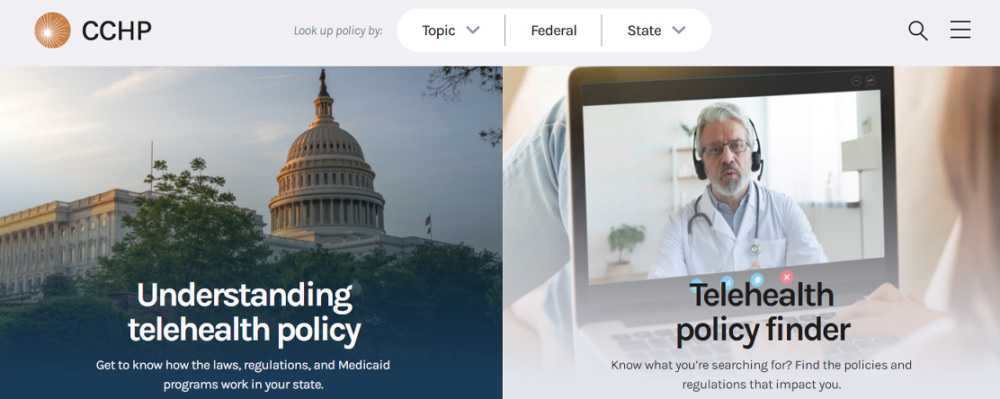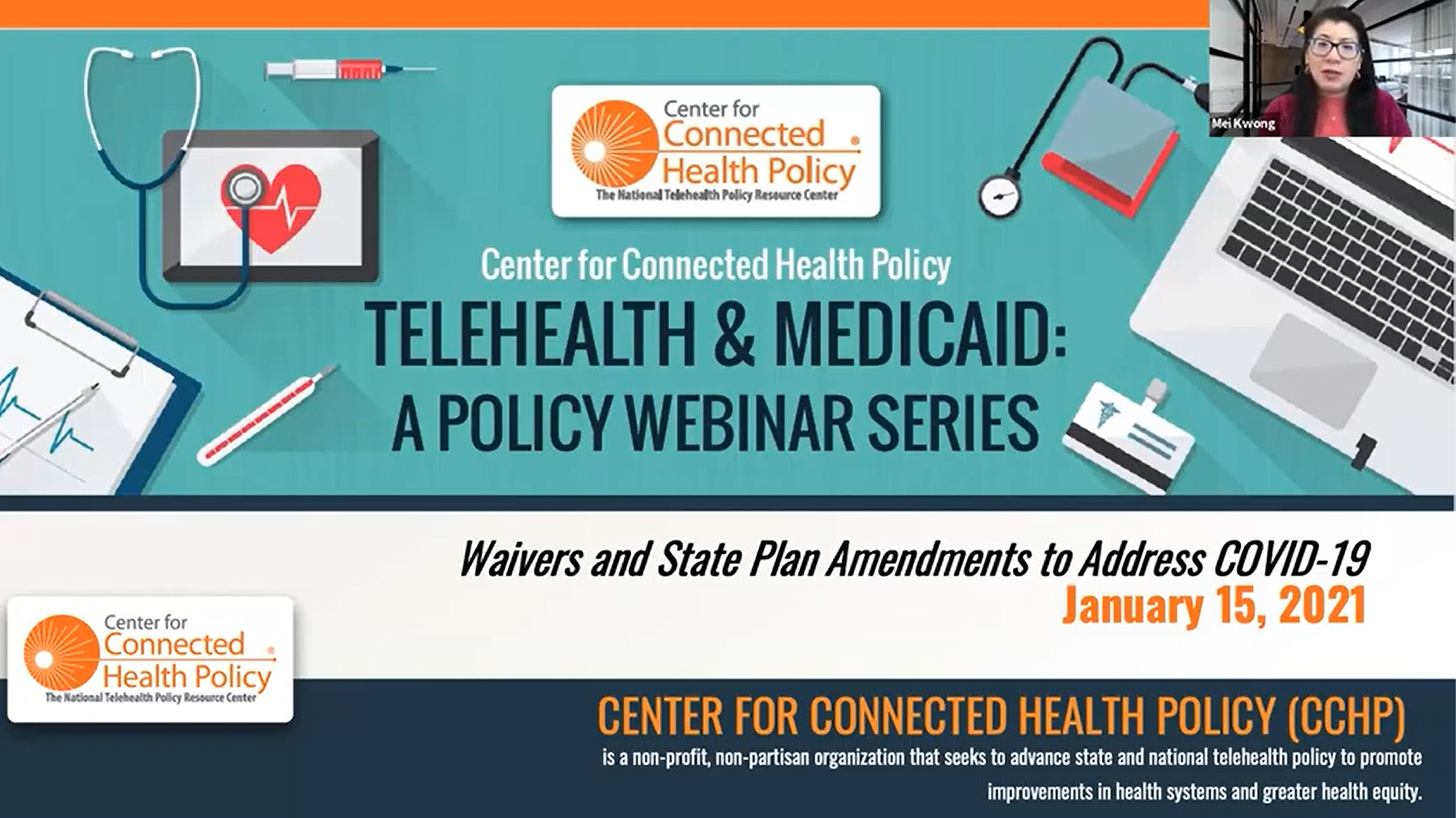
Telehealth & Medicaid: A Winter 2021 Policy Webinar Series & Summary
-
Focus Areas
Capacity Building & Leadership, Data, Technology & Innovation -
Issues
Technology & Telehealth -
Expertise
Public Policy Development, Technical Assistance -
Programs
Center for Connected Health Policy -
Strategic Initiatives
COVID-19

Created by PHI’s Center for Connected Health Policy (CCHP), Telehealth & Medicaid: A Policy Webinar Series was developed in response to an ever-changing and complex landscape for telehealth policy in Medicaid, specifically in the context of COVID-19.
Listen to the recordings to learn from high-level experts and administrators representing 10 different Medicaid agencies, as well as experts from the federal Centers for Medicare & Medicaid Services and Medicaid and CHIP Payment and Access Commission.
Because Medicaid programs are administered at the state level, no two Medicaid programs are alike. Under federal law, Medicaid programs are required to provide a set of essential services, which includes a variety of preventive, inpatient, and outpatient healthcare services but excludes services like dental, optometry, or specialty care, among others. States elect to cover optional benefits above and beyond the MEC guidelines. Similarly, Medicaid programs have discretion in determining the scope of their telehealth coverage policies. While states have increasingly moved to reimburse providers for telehealth services in recent years, telehealth coverage policies can range from narrow to expansive.
As Medicaid programs rapidly expanded their telehealth coverage policies amidst the COVID-19 pandemic, PHI’s Center for Connected Health Policy CCHP developed a policy tracking tool that captures the COVID-related telehealth policy actions for Medicaid programs in all 50 states and the District of Columbia (DC). The Medicaid webinar series is an extension of this work and offered providers, administrators, and policy staff in Medicaid agencies the opportunity to share insights and best practices with a diverse audience.
Access the recordings of the webinar series
- Waivers and State Plan Amendments to Address COVID-19
- Provider Engagement & Education During the Public Health Emergency
- Patient Engagement & Education During the Public Health Emergency
- What’s Next? A Roadmap for Medicaid Telehealth Policy Beyond the Pandemic
Report: Telehealth & Medicaid: A Policy Webinar Series
CCHP also recently completed and released a report summarizing the four webinars hosted during the Winter series. The report dives into the findings gleaned from the presentations and synthesizes key takeaways from each Medicaid agency’s COVID-19 telehealth policy activities.

Register for the Fall 2021 Policy Webinar Series: Telehealth & Medicaid
PHI’s Center for Connected Health Policy is hosting their second Telehealth & Medicaid: A Policy Webinar Series, returning in April with four new webinars exploring telehealth and Medicaid in the context of COVID-19, and featuring Medicaid experts. These four webinars will be held in September/October and will explore the topics of Medicaid & Audio-Only; Medicaid & Telehealth Data Collection: Surveys, Studies & Advisory Groups; Medicaid & Other State Agencies Telehealth Policies for Patients with Disabilities; and Medicaid & Permanent COVID-19 Telehealth Policies.
Originally published by Center for Connected Health Policy
Work With Us
You change the world. We do the rest. Explore fiscal sponsorship at PHI.
Support Us
Together, we can accelerate our response to public health’s most critical issues.
Find Employment
Begin your career at the Public Health Institute.



